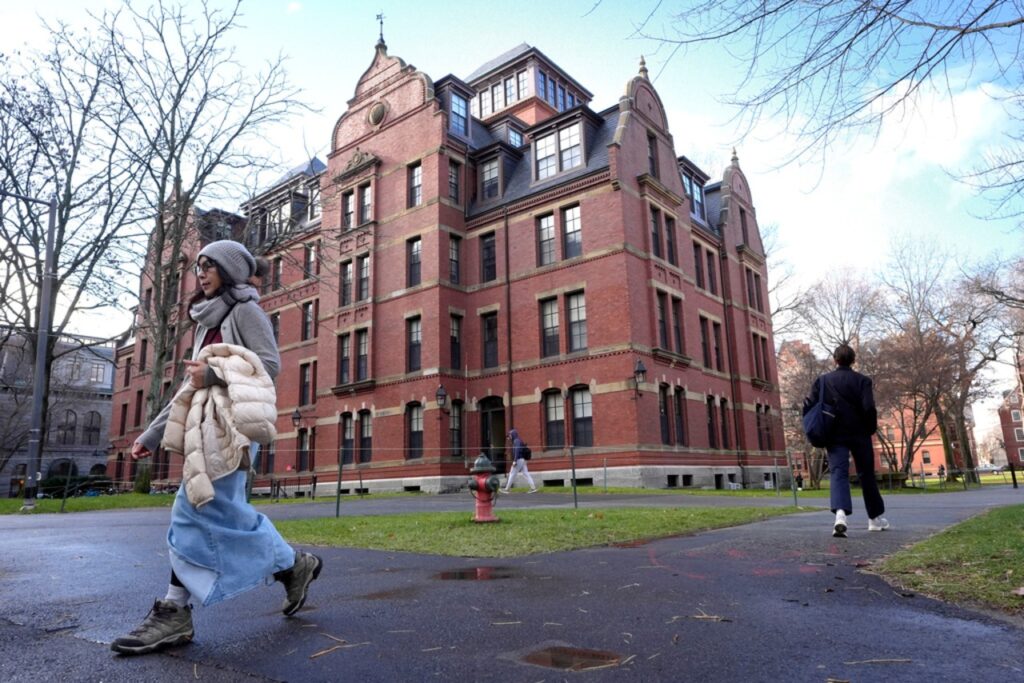Kseniia Petrova, a Russian scientist at Harvard University’s Medical School who was charged in connection with undeclared frog embryos brought to the United States from France, has been released from immigration custody following a Wednesday ruling from a federal judge.
Petrova was unlawfully detained and didn’t pose a danger, according to the ruling of U.S. District Judge Christina Reiss in Burlington, as stated in the Associated Press.
The embryos were non-living, non-hazardous and “posed a threat to no one,” Reiss said.
Petrova, 31, a Russian citizen, has been held in immigration custody since Feb. 16 when she was detained at Boston Logan Airport by Immigration and Customs Enforcement (ICE) and later arrested on a criminal charge.
She was charged by criminal complaint with one count of smuggling goods into the United States.
Petrova is in Louisiana and is expected to be brought to Massachusetts as early as Friday for a bail hearing next week on the smuggling charge, the Associated Press said.
What happened?
Petrova returned from France with “non-hazardous, noninfectious, and non-toxic frog embryos” at the request of her supervisor at Harvard Medical School, Dr. Leonid Peshkin, according to court documents.
An ICE K9 unit alerted its handler to Petrova’s duffle bag on the baggage carousel, Foley’s office said. Agents then stopped Petrova, removed her bag and brought it for further screening. Inside was a foam box with clawed frog embryos in microcentrifuges, as well as embryonic samples in paraffin well stages and on mounted dyed slides.
Petrova initially denied carrying any biological material in her checked bag before admitting that she was carrying such material, Foley’s office said. While speaking with law enforcement, she said she needed to declare the embryos before entering the United States.
Her phone showed text messages from one of her colleagues telling her to declare the embryos “because [Transportation Security Administration] went through my bags at customs in Boston,” Foley’s office said.
According to the charging documents, however, Petrova’s phone revealed text messages from an individual identified as one of Petrova’s colleagues informing Petrova that she was required to declare the biological material:
“What is your plan to pass the American Customs with samples?” one of the texts to Petrova read, according to Foley. “This is the most delicate place of the trajectory.”
Another text conversation with her “principal investigator” showed that Petrova replied that she did not have a plan to get the samples through customs.
“No plan yet. I won’t be able to swallow them,” Petrova texted back, according to Foley.
Petrova was advised by agents that she was ineligible to enter the country with the undeclared embryos, the statement read. When asked if she would withdraw her application for admission, she replied yes before her arrest.
When asked if she feared returning to Russia, Petrova said she had a valid Schengen visa that allows her entry into 29 European countries, including France, according to a complaint she filed. After this, she was detained and transferred to ICE custody to await a credible fear interview.
She previously worked as a bioinformatician of genetic disorders at the Moscow Center for Genetics from 2016 to 2023, followed by the Institute of Genetic Biology in Moscow from 2023 to 2024, Foley’s office said.
The charge of smuggling goods into the United States provides for a sentence of up to 20 years in prison, a term of up to five years of supervised release, and a fine of up to $250,000.
The Department of Homeland Security previously stated that messages found on her phone “revealed she planned to smuggle the materials through customs without declaring them.”
In 2022, Petrova was arrested in Russia after she protested the invasion of Ukraine, Peshkin told the Boston Globe. She was not fined and was released. Peshkin added that he regrets that Petrova brought the frog embryos back to the United States in February.
While detained in an ICE detention center in Louisiana, Peshkin told the Globe that Petrova has called him nearly every day and is allowed to play basketball and watch television.
“It’s a misunderstanding and a mistake, and she should be back at work working on cures and conducting biomedical research, not learning to play basketball in a detention center in Louisiana,” Peshkin said to the Globe.


